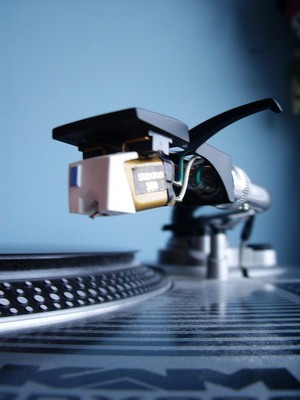 As a student, I was a bit of an audiophile, at least in the sense of making regular visits to the best local hi-fi shop, passing a lot of time there, and spending rather more of my limited funds than I probably should have on speakers, amps and the like. In later years, I started to realise that much of the stuff I was reading in audio magazines was complete rubbish, or overt sponsorship, or — more typically — both, and my attention drifted to other things. But I’m still interested in proper scientific analysis of what sounds good.
As a student, I was a bit of an audiophile, at least in the sense of making regular visits to the best local hi-fi shop, passing a lot of time there, and spending rather more of my limited funds than I probably should have on speakers, amps and the like. In later years, I started to realise that much of the stuff I was reading in audio magazines was complete rubbish, or overt sponsorship, or — more typically — both, and my attention drifted to other things. But I’m still interested in proper scientific analysis of what sounds good.
John Gruber linked to this article by Dave Hamilton, which explains why we record things on CDs at 44.1kHz and 16 bits. Quick summary: you may think you can hear higher resolution than that, but you almost certainly can’t. As part of the discussion, he linked to this nicely-done blind test on an audiophile site, where people were invited to download high-quality recordings of different pieces of music, play them back on the best gear they owned, and say which they thought was the 16-bit and which the 24-bit recording. After gathering data for two months, he published the results. Summary: you can’t hear the difference, even if you’re a musician and have very expensive gear.
Now, as Hamilton points out, there are good reasons for recording in higher resolution, because you want as much information as you can have in the recording, mixing, processing stages before you produce the final mix, in the same way that you should take RAW photos rather than JPEGs so that you can do more with them before producing your final image.
But when you actually come to distribute your final output, it’s fine to ship high-quality JPEGs, and it’s also fine to ship CD-quality audio. If it’s well-produced, then any more is completely unnecessary, whatever the sales guys may say! Unless you’re Superman, of course, in which case, thanks for dealing with that Luthor guy and still finding time to read my blog.
Whilst at university I suggested to a tutor that an interesting PhD (basis) would be to take several subjective audiophile myths and thoroughly investigate (debunk) them. This would have naturally led to experiments such as the one you highlight. Still, lots of people apparently like to spend $300 on a power cord. or insist that removing the fuse enhances fidelity! I’m in the wrong business…
“In later years, I started to realise that much of the stuff I was reading in audio magazines was complete rubbish, or overt sponsorship, or — more typically — both”
Unfortunately that happend to the PC Magazine press as well. 🙁
…and maybe even the press in general.